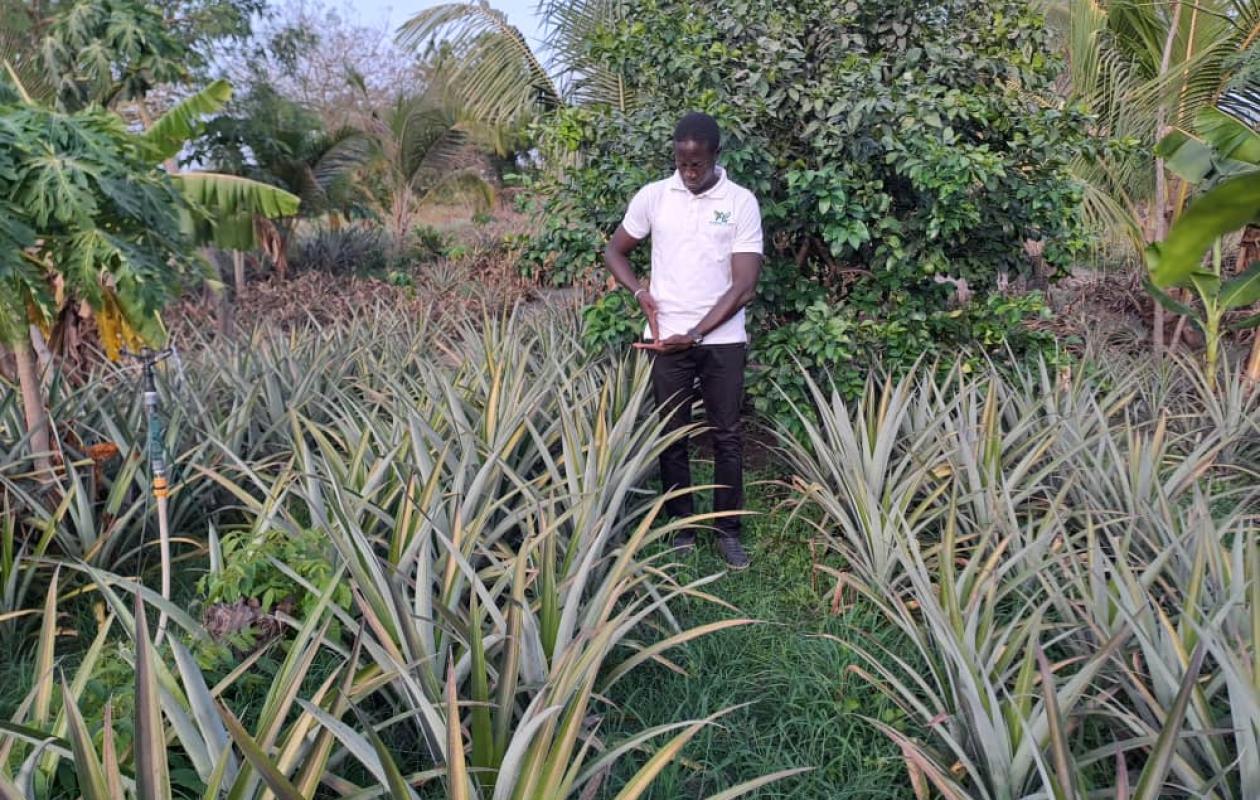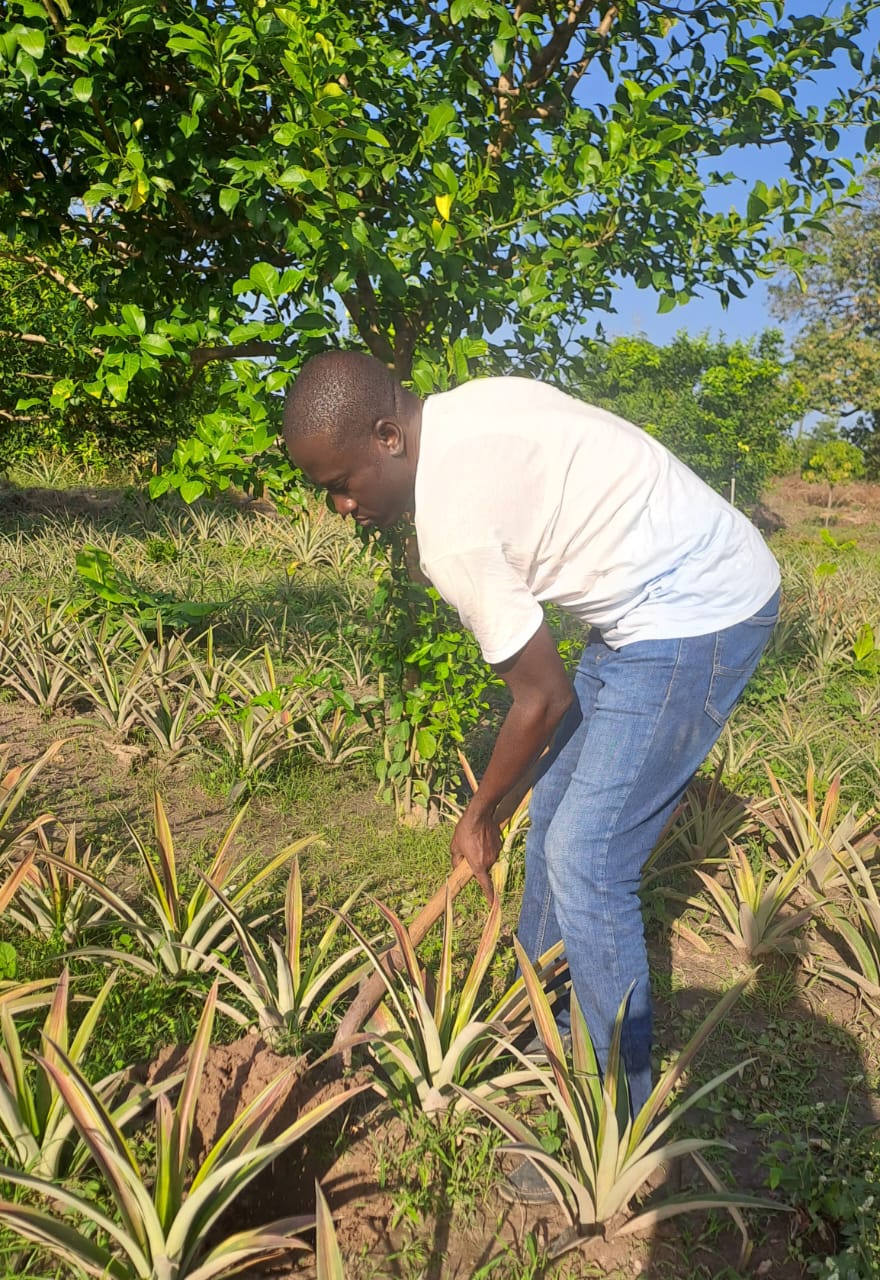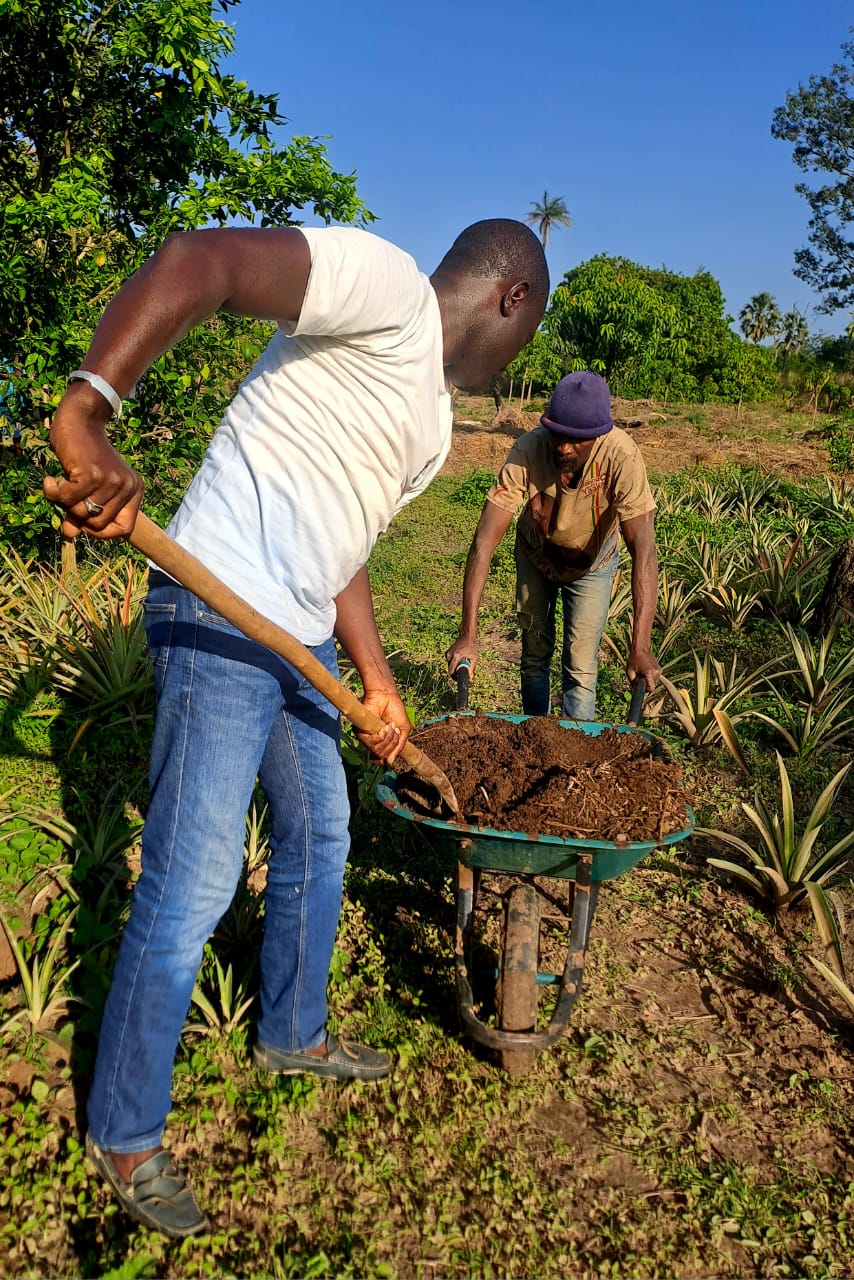
[Découverte] Culture de l’ananas en Casamance : l’ambition d’un historien Horticulteur
Coming from a lineage of horticulturalists, Dr. Mohamed Lamine Manga, a history lecturer and researcher at Assane Seck University in Ziguinchor, cultivated an early passion for the land. This tradition, inherited from his grandparents, is reflected today in his commitment to pineapple cultivation, which he cultivates on 2 hectares of a 5-hectare estate in Colomba, in the Bignona department.
A childhood dream come true
From a young age, Dr. Manga harbored the ambition of growing pineapples. “The idea came to me very early on. In Colomba, a site inspired me. My father had brought pineapples back from Ziguinchor, and I planted their crowns in fine sand. With watering, they produced juicy fruit,” he confides. This childhood dream came true years later, when he gathered the resources to invest in this sector. Outside of his activities as a teacher and political analyst, he has become a fervent advocate of pineapple cultivation in Senegal, particularly in Casamance.
Pineapple, an opportunity for Senegal
Contrary to the idea that Senegal's climate is unsuitable, Dr. Manga asserts that "Senegal meets the conditions of a tropical country." For him, pineapple, often perceived as a luxury product, can be grown anywhere in the country with good soil preparation, a water supply, and adequate supervision. "It's a hardy plant, resistant to disease and attacks," he explains, noting that its development was hampered under President Abdou Diouf by a lack of support for farmers.
The medicinal and economic virtues of pineapple
Pineapple offers multiple benefits, according to Dr. Manga. "The fruit and the plant have medicinal properties, useful for preventing diabetes, diarrhea, hypertension, obesity, and even tuberculosis," he says. He also highlights its potential in the textile industry, where the leaves are processed in some countries. Economically, pineapple is a promising sector: one hectare can produce up to 70 tons in the first year, with the potential increasing sevenfold in subsequent years if producers are motivated and efficient.
A call for support from the authorities
Dr. Manga laments that most of the pineapples consumed in Senegal come from the subregion, particularly from Côte d'Ivoire and Guinea, often picked before maturity and chemically treated. "Casamance produces better quality, less acidic pineapples on suitable soils," he says, urging the government to encourage this sector to reduce dependence on imports and stimulate the local economy.
An ambitious vision for Casamance
Dr. Manga aims to make Casamance a pineapple exporting region to Dakar and other parts of Senegal within five years. To achieve this, he currently coaches ten producers and plans to train around fifty within two to three years, with a goal of 150 to 200 producers within five years. He also integrates pineapple cultivation into community initiatives, such as the farms conceptualized since 2014, and carries out reforestation actions to support the humidity necessary for this crop. "We have created eight community forests in the Bignona department," he explains.


Commentaires (4)
Jus d'ananas naturel avec du gingembre : un vrai délice vraiment sain .
Félicitation au Dr Manga. Une initiative à encourager et démultiplier. L'ISRA récemment s'est entrepris de reprendre la production de plants d'ananas en utilisant la technologie de la culture In vitro. Cependant, les moyens ne suivent pas. Effectivement, le Sénégal produisait de l'ananas jusqu'en 2000 où les politiques d'ajustement ont bouleversé la filière. Wade a achevé les dernières initiatives menées par le CDH en morcelant les 42 hectares du centre qu'il a distribué à des businessman et même à Coumba Gawlo. C'est malheureusement tout ça qui nous suit encore au Sénégal. Aujourd'hui nous avons un Ministre de l'Agriculture trop bavard plus préoccupé par son image personnel que de trouver des solutions aux vrais problemes de l'agriculture du Sénégal. Je vous conseille de vous rapporcher de l'ISRA à travers le LNRPV. Bonne continuation
Il est en retard. Il y'a déjà une société sénégalaise qui en a beaucoup cultivé. Le produit est même disponible à la rue Sandinièry et chez Auchan. en plus il est très juteux. par ailleurs, bon continuation à mr Manga.
si on veut on peut être autosuffisant au Sénégal. chaque région a son potentiel. mais on préfère acheter toujours acheter chez les autres.
Participer à la Discussion